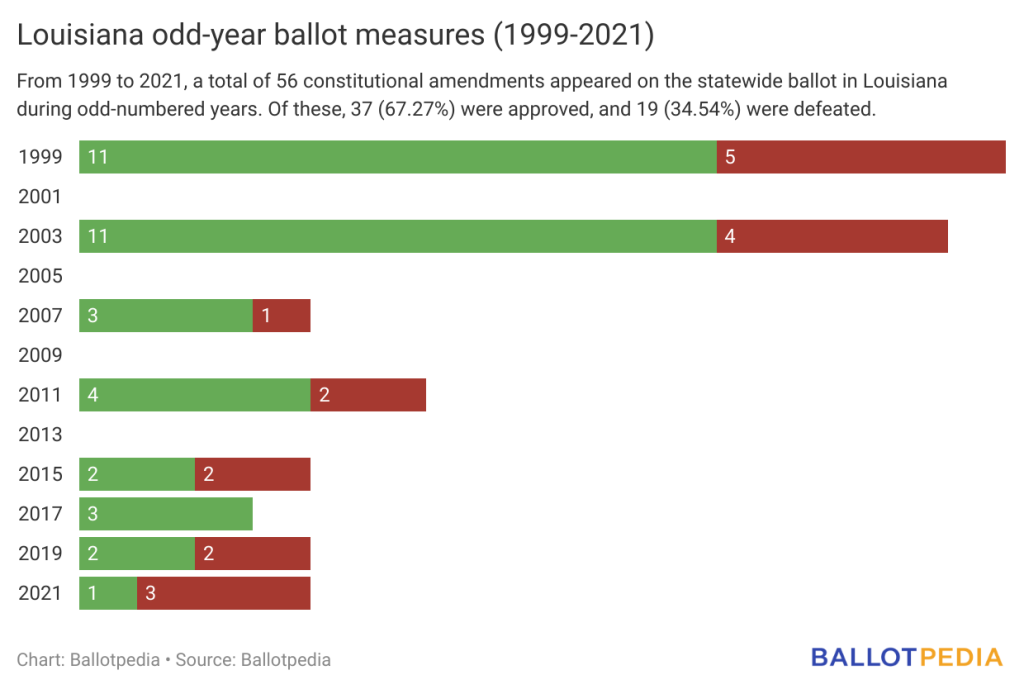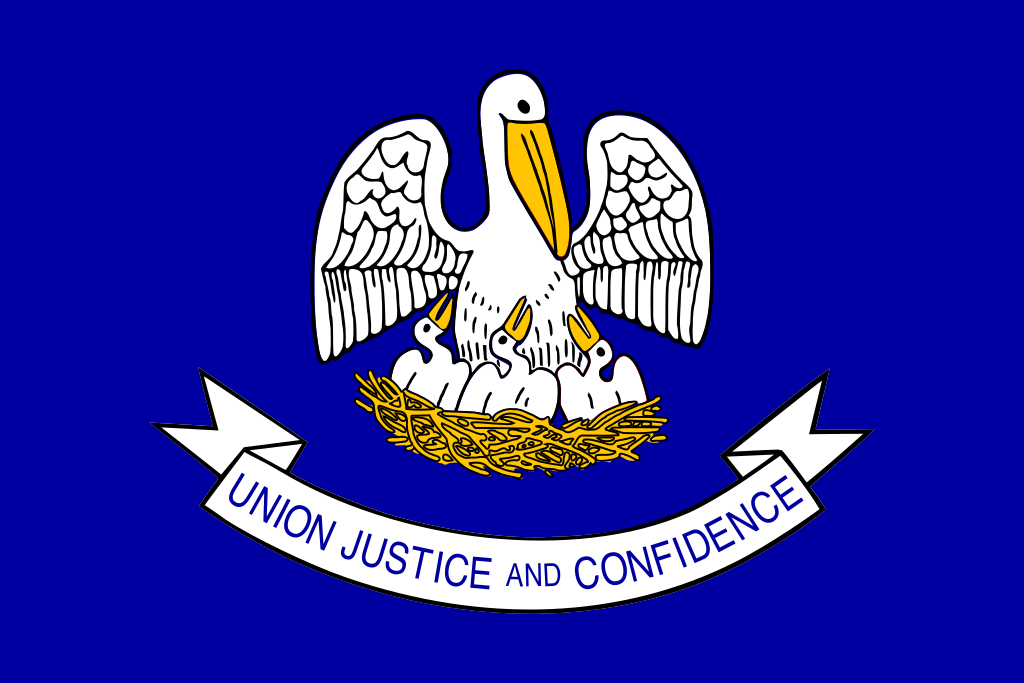In Oct. and Nov. 2023, voters in Louisiana will decide on eight constitutional amendments. The state Legislature referred four of the amendments to the ballot on Oct. 14, and the other four of the amendments to the ballot for Nov. 18.
A two-thirds vote was required in each chamber of the Louisiana State Legislature to refer the constitutional amendments to the ballot for voter consideration. Louisiana has a divided government in which the governor is a Democrat, while Republicans hold majorities in both chambers of the legislature.
On Oct. 14, voters will decide the following four constitutional amendments:
*Amendment 1, which would prohibit the use of funds, goods, and services donated by foreign governments or nongovernmental (private) sources in conducting elections.
*Amendment 2, which would provide, in the state constitution, that the freedom to worship in a church or other place of worship is a fundamental right deserving the highest level of protection;
*Amendment 3, which would require a minimum allocation of 25% of nonrecurring state revenue to address the unfunded liability of the state retirement system; and
*Amendment 4, which would prohibit nonprofit organizations from receiving property tax exemptions if they own residential properties that pose a danger to public health or safety due to disrepair.
Additionally, on Oct. 14, voters in East Baton Rouge Parish will decide on a measure to renew a 3.13 mill property tax levy ($313 per $100,000 of assessed value) to fund emergency medical services through 2034.
Voters in Orleans Parish will decide on four local measures:
*Proposition 1, which would move the deadline up 30 days for the City Planning Commission to submit a capital program to the Mayor so the city council has additional time to conduct public hearings on budget matters;
*Proposition 2, which would authorize the Department of Code Enforcement, rather than the Departments of Safety and Permits and Sanitation, to inspect property and authorize demolition or remediation of property found to be hazardous to health, as well as enforce laws and regulations for removing trash and weeds from streets and vacant lots;
*A school board proposition that would renew a 4.97 mill property tax ($497 per $100,000 of assessed value) for 20 years to fund improvements and repairs to public school facilities; and
*A measure that would levy a $300 annual fee for improved parcels of land to promote beautification and security within the Lake Willow Subdivision Improvement District for a period of three years.
On Nov. 18, voters will decide the following constitutional amendments:
*Amendment 1, which would provide that the legislature has the authority to consider vetoed bills during regular or extraordinary sessions instead of convening a separate veto session;
*Amendment 2, which would repeal constitutional provisions that establish various inactive state funds and permit the transfer of remaining funds to the state general fund;
*Amendment 3, which would authorize local governments to grant an additional property tax exemption of up to $2,500 for first responders, including firefighters, emergency medical service personnel, emergency response dispatchers, peace officers, police officers, and sheriffs; and
*Amendment 4, which would allow the legislature, through a two-thirds supermajority vote, to utilize up to $250 million from the Revenue Stabilization Trust Fund to address a budget deficit.
From 1999 to 2021, a total of 56 constitutional amendments appeared on the statewide ballot in Louisiana during odd-numbered years. Of these, 37 (67.27%) were approved, and 19 (34.54%) were defeated. On average, approximately five constitutional amendments were on the statewide ballot during odd years in Louisiana.

Louisiana is one of few states that frequently feature odd-year ballot measures along with Colorado, Maine, New Jersey, New York, Ohio, Texas, Washington, and Wisconsin. In 2023, 41 statewide ballot measures were certified for the ballot in eight states for elections in 2023. From 2011 to 2021, the average number of statewide ballot measures in an odd-numbered year was 33.
Additional reading:


